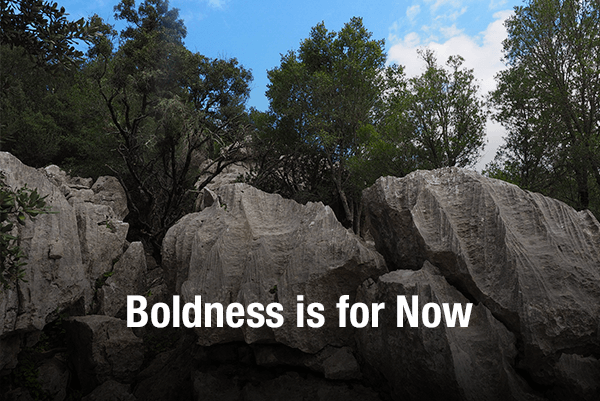[:en]The CEO of a non-Japanese company in Japan reached out to me early this year with best wishes and the great news that his company had outstanding results in 2020. I was glad to hear it, but not surprised given the kind of leader he is and the business he runs. He is not an exception. Most of the CEOs in my community had excellent results in 2020, and for some it was even a record year.
A year ago, pre-pandemic, I was having a very different kind of conversation with the same CEO. He was pushing the organization to change and having success, but not as fast as he wanted. The company’s business model that served the company well for decades had exceeded its use-by date. The CEO knew the future would be in e-commerce direct-to-consumer sales, and while the company had made considerable progress in that direction, it was not enough. The inertia among staff to change, while not universal, was still substantial, and even among those open to change, motivation was often tepid. The CEO at times hesitated, not wanting to push too hard or too fast for change for fear of the damage that might cause, feeling his way for the right measured degree.
The pandemic changed all that. By March last year, the global leaders of the business viewed what was happening as an existential crisis. They called on leaders all over the world for help in addressing it, and address it they did. Nothing like a good crisis to galvanize unity, and sense of urgency and of purpose. The CEO achieved the change he had wanted all along, and fast too. After all, tentativeness was not option—or at least not if he wanted to succeed.
This is not to say that there was no pain, no setbacks, or no resistance. There always is, no matter the change or existing buy-in. The company survived intact, along with most staff nonetheless. Now the business thrives, even better than before, and the results bear out the success.
In any economic crisis, there is a cleansing effect. Poor performing companies and even some that are doing just OK but resistant to growth and change, tend not to come out on the other side, and this what I have seen in Japan.
Companies whose leaders had been pushing for ways to doing business with customer directly, both through technology and other means, have come through in good shape, even if their efforts had been facing resistance beforehand. Companies whose leaders had begun developing options for staff to work remotely, have done well, even though the idea of working from home had been an anathema among a majority of staff and managers. Companies whose leaders had cultivated a culture of flexibility and adaptability to capture market opportunities fast when change occurs or otherwise appears imminent, have emerged running at full speed. Companies whose leaders had insisted upon sales forces to regularly reach out to existing customers proactively rather than just responding to inbound inquiries, no matter how fast the response time, have equally done well. Perhaps even more importantly, companies that had set aside cash to carry them through hard times afforded themselves options for bold action to carry them though the crisis. Yet it is only those companies whose leaders had actively been pushing for growth and change beforehand that have emerged successfully, even if the change had been met with resistance and mixed success at the time.
As I write today, Japan is going through its darkest and most troubling time of this pandemic so far. Yet we can see the light. Vaccines are coming as is the approaching spring. The situation will become less volatile, and not just that. I foresee a business boom in Japan coming faster than you might believe.
Yet don’t let any of that lull you. Retain the boldness of action and change that has gotten you through to today. For the CEO whom I discussed above, there had been no more reason for him to be tentative in his push for change in his business pre-pandemic than there was after the crisis was upon him and the rest of us.
The time for boldness is always now—crisis optional. It’s up to you.
The time for boldness is always now. Share on X[:ja]今年の初めのことですが、日本にある外資系会社のCEOから新年の挨拶と共に、2020年に素晴らしい業績が出せたという嬉しいお知らせがありました。しかし彼のリーダーシップと彼が率いる会社のことを考えると、それは別に驚くようなことではありません。また、私がおつきあいさせていただいているCEOの皆さんの多くも、2020年の業績を報告しており、中には過去最高の売り上げを出したビジネスもあります。
このCEOとは、パンデミックがまだ襲っていなかった一年前にも話をしたのですが、その会話の内容は今回とはまるで違ったものでした。当時彼が会社で遂行していた改革は上手くは行っていたのですが、そのスピードは十分とは言えませんでした。それまでは上手く行っていた社のビジネスモデルは時代遅れのものであり、将来はオンラインで消費者に直接販売することが大事になってくることが、彼には見えていました。実際会社もかなりその方向に移行してきてはいたのですが、まだ十分とは言えませんでした。スタッフ間の改革に対する真剣さが全然ない、という訳ではありませんでしたが、それでもやる気の不十分さはまだかなり感じられましたし、改革を受け入れている社員のモチベーションも、大抵ぬるいものでした。そのような中、改革をやたら推し進めたり急かしたりすれば、ダメージを産みかねないと恐れたCEOが、どのように手加減したものかと模索しながら躊躇してしまうことも多々ありました。
しかしパンデミックが起こり、状況は全て変わりました。会社のグローバルビジネス担当のリーダーは、昨年の3月には、自社が存続の危機に直面していることを理解し、世界に散らばる支社のリーダーたちに対処を求めました。そしてリーダーたちは実際に対処に取り掛かったのです。大きな危機ほど団結や切迫感、目標を思い起こさせるものはありません。このCEOもずっと行いたかった改革をあっという間に達成することが出来ました。結局のところ成功したいのであれば、躊躇することなど許されないのですから。
だからと言って、その途上で苦労や挫折、抵抗を経験しなかったという訳ではありません。それらは改革には常についてくるものです。この会社は危機を乗り越え、ほとんどの社員も職を失うことはありませんでした。そして今、ビジネスはこれまで以上にうまく行っており、業績もそれを裏付けています。
浄化作用はどのような経済危機においても見られます。業績の悪い会社や、なんとかやってはいるけれども成長や改革を拒むような会社は大抵生き残れないものですし、実際、私は日本でもそういった会社を目にしてきました。
リーダーがテクノロジーなどを使って顧客に直接販売する方法を開拓することを推し進めてきたような会社は、例えその途上で抵抗にあってきた場合でも、結局は危機を乗り越えて良い状態で生き延びました。社員にテレワークができるような制度を作ってきた会社は、以前は殆どの社員もマネージャーもそれを使っていなかったようなところであっても、現在は成功させています。何かがあった時にすぐに市場機会を掴めるように、柔軟性や適応性のあるカルチャーを養ってきたリーダーに率いられた企業は、トップスピードで走り続けています。リーダーからの指示により、営業チームが単に問い合わせに対応するのではなく、積極的に顧客に定期的に連絡を取るようにしている会社も、同様にうまくやっています。そしてさらに重要と思われるのは、危機に見舞われた時も生き延びるための予備の予算をとっていた企業には、危機を乗り越えるための思い切ったアクションをとるというオプションがあったということです。以前改革に対する抵抗や改革が100%うまく行っていなかったとしても、前もって積極的に成長や改革を推し進めていたリーダーの企業だけが、今回の危機を乗り越えて成功を収めたのです。
この記事を書いている今、日本は今回のパンデミックが始まって以来、最も苦痛を伴う大変な時を経験しています。しかし光は見えてきました。春に向けてワクチンの接種開始が予定されています。状況もだんだん落ち着いてくるでしょう。それだけではなく、私は多くの人々が考えているよりずっと早く、日本にビジネスブームがやってくると見ています。
だからと言って安心してはいけません。このパンデミックを今まで乗り越えてくるのを助けてくれた、行動や改革に対する大胆さを持ち続けて下さい。上記のCEOの場合も、パンデミックが起ころうがその前であろうが、改革を推進することに躊躇する理由などなかったのです。
大胆さが必要となるのは、常に今だということを覚えておいて下さい。危機など必要ではなく、とにかくあなた次第なのです。


